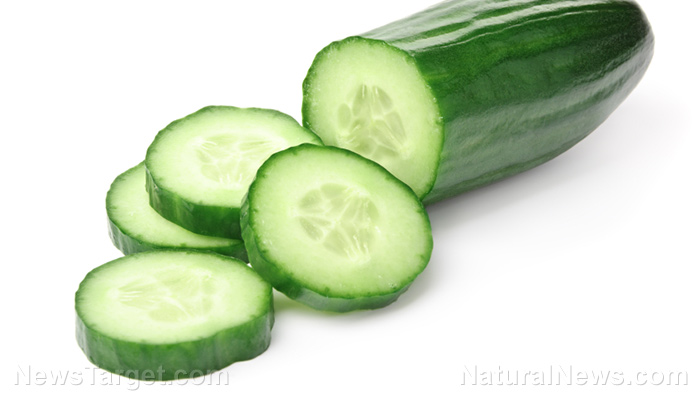
If you're looking to improve your diet, one of the things that you should consider including in it are cucumbers. These are among the healthiest foods in the world and yet a lot of people overlook their nutritional value. Before tossing away the cucumbers in your salad or sandwich because they taste a bit plain, consider their many health benefits, which includes preventing memory loss and Alzheimer's disease.
This effect of cucumbers was determined by researchers from the Salk Institute for Biological Studies. In their study, they used mice as animal models for Alzheimer's and its associated symptoms, such as memory loss. They found that mice that were given a daily dose of the flavonol called fisetin, which is found in cucumbers and other plant-based foods, exhibited a delay in the development of memory loss and Alzheimer's symptoms. In some cases, these symptoms were even prevented completely.
Another astounding discovery that the researchers made was that these improvements could be observed even if the mice continued to develop amyloid plaques, which are believed to be the major contributors to the progression and development of Alzheimer's. Moreover, mice that did not have the neurodegenerative disorder still exhibited memory improvements after receiving fisetin.
Fisetin is believed to improve memory by triggering a cellular pathway that involves the part of the brain that retrieves memories. Additionally, this flavonol has been shown to have anti-inflammatory and antioxidant properties that are effective on brain cells, thereby preventing them from aging and its associated effects.
The results of this study suggest that people who have a high risk of developing Alzheimer's should include cucumbers and other fisetin-rich foods in their diet. This includes those who have a family history of the disease, those who suffered from head injuries, and people with heart problems.
Other health benefits of cucumber
There are many other reasons why should eat cucumbers. These highly nutritious fruits are rich in potassium, fiber, and vitamin C, as well as phytonutrients like flavonoids, lignans, and triterpenes. These phytonutrients are important because of their potent antioxidant and anti-inflammatory properties. These components also contribute to the other health benefits of cucumbers, which include the following:
- Hydrating -- Cucumbers are a great way to hydrate and cool off, especially during the summer, since they are 95 percent water. In addition to this, they are rich in magnesium and potassium, which are minerals involved in hydration.
- Preventing cardiovascular disease -- The high potassium content of cucumbers also contributes to its ability to prevent cardiovascular disease since this mineral helps reduce blood pressure. Lignin is another compound found in cucumbers that improves heart health. It works as an anti-inflammatory agent and consequently reduces the risk of cardiovascular disease.
- Encouraging weight loss -- Studies have shown that increasing water consumption before meals can help a person lose weight. By eating cucumbers, you can effectively increase your water intake while enjoying a low-calorie food.
- Eliminating toxins -- Eating cucumbers can help you get rid of toxins and waste material in your body by helping you pass more urine.
- Regulating blood sugar levels -- Cucumbers can help patients with diabetes control their blood sugar levels, especially when they're eaten with their peels.
- Reducing cancer risk -- Lignans and cucurbitacins that are found in cucumbers have been associated with anti-cancer properties, especially against pancreatic, breast, and ovarian cancer. (Related: Cucumbers contain bioactive compounds that help fight cancer, heart disease and more.)
Find more foods that help maintain cognitive function at SuperFoods.news.
Sources include:
Please contact us for more information.















